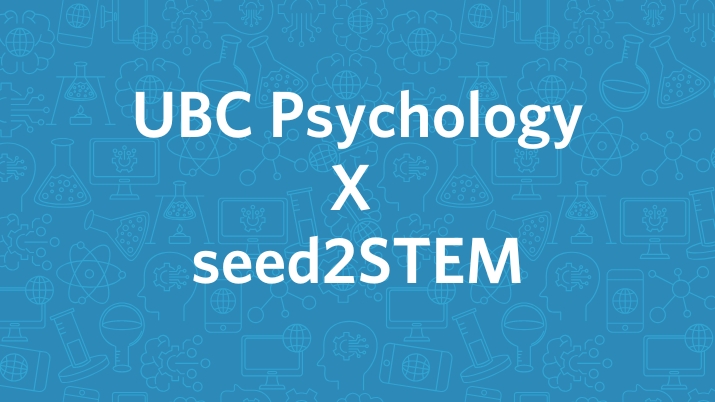

David Klonsky
This month’s Thriving Faculty feature is E. David Klonsky, Associate Professor in the Department of Psychology.
Thriving Faculty is a monthly column that highlights UBC faculty who exemplify the integration of health and wellbeing into their classrooms, research, departments and communities. More.
What are central challenges you face in your role as Faculty?
Oh my gosh, there are so many! Probably the main challenge involves time-management. There are always a million exciting projects to pursue, too many to do in one lifetime, and at any given time my students and I are pursuing dozens of these. Moreover, in addition to these research projects. I have classes to teach, committee memberships, journal editorial responsibilities, grants to apply for, media interviews to give, and on and on. And of course there is also life outside of work, things like family, hobbies, sleep and eating! In short, the sheer quantity of activities and responsibilities can be overwhelming. This challenge requires some combination of a) time-management skills and b) acceptance that one will always be behind on multiple things. At the same time, the sheer quantity of projects and activities keeps work fresh and exciting.
Do you implement any strategies to support student mental health and wellbeing in the classroom/lab?
I think it is important that my students feel listened too, understood, and supported, and I try to convey that in my everyday interactions with students. I also try to create a lab characterized by enthusiasm, authenticity, and collaboration. The idea is to make day-to-day life in the lab fun and exciting more than stressful and pressured, and for students to learn that they can come to me for guidance or advice when they need it. Sure, stress and anxiety and even rejection are part of graduate school and part of the research enterprise. But we get into this field (psychological science) because it is exciting to produce new knowledge and exciting learn how to better understand and help people.
What strategies do you use in your own life, that help you thrive as Faculty?
My first rule, which I recently heard echoed by another researcher in the U.S., is to be nice. Being nice is one of the few things we can control. We all have weaknesses; for example, I am poorly organized and always fall behind on my email (as I type this I have 153 messages in my inbox requiring action or replies). Often despite my best efforts I fall behind on deadlines or do not give timely email replies to others. So the least I can do is be nice to others; that is something within my control and abilities. Life is more pleasant when we are all nice to each other. Another strategy I use is to make sure I have time for my hobbies, which includes my weekly doses of exercise. In my case I enjoy various martial arts, both as student and as an expert in the role of psychology in martial arts competition. I try to train three or four times per week, and try to never allow myself to train less than two times in a given week, because after I train I feel happier and less stressed. Life can get very busy, and has gotten even busier since the birth of my first kid, but making time for hobbies and exercise seems to be a key for my own mental health.
Are they any specific initiatives and/or research you are involved in that promote health, mental health and wellbeing?
I study suicide, including why people feel suicidal and why some who feel suicide go on to attempt suicide. More about my research can be found at my lab website: www.PEBL.org. I also am a member of the UBC suicide awareness committee, which helps to provide education and resources to the UBC community regarding suicide prevention (such as http://thrive.ubc.ca/prevent-suicide).
In your role as faculty, please describe your experience balancing work-life commitments? Is there a metaphor that depicts this relationship?
Hmm, a metaphor. Well, I think we often feel that we have to juggle everything, and that if we have 27 balls in the air it is absolutely essential to not drop any of them, or else! Instead, what I have learned is to have some acceptance that balls will get dropped, and that these can be picked back up again if important to me, and that this is the rule, not the exception. I will never successfully juggle everything. So I focus on the balls most important to me and frequently let other important ones drop, sometimes for good, or sometimes just temporarily until I pick them back up again. And I accept that if I am doing my best to not drop the most important balls, and doing my best to be nice to everyone along the way, things will work out.


